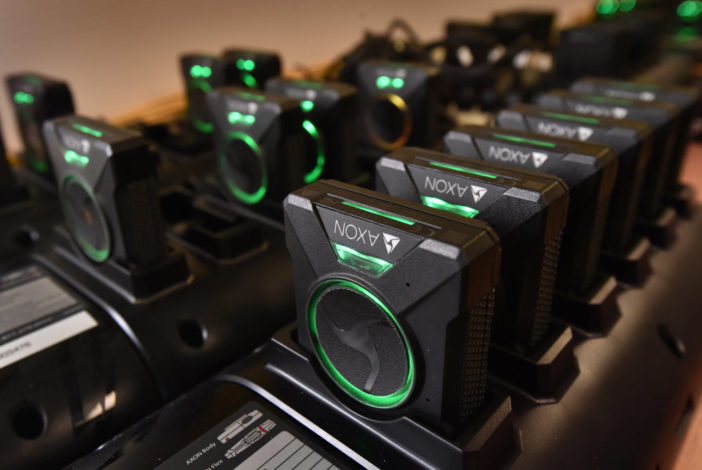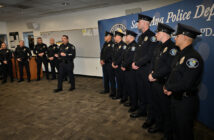The largest study to date on the impact of body-worn cameras on police use of force and complaints was just completed in Washington D.C.
The study conducted by Lab@DC involved 2,224 officers from the Metropolitan Police Department. The number is important because previous studies, such as in Rialto, CA, involved much smaller numbers.
According to the authors of the study, “One of the theories of change underlying the anticipated effects of BWCs is that both officers and civilians on the street will behave differently if under the watchful lens of a camera.”
That was the case in Rialto.
But in the nation’s capital, the difference in use of force and police complaints was, “statistically insignificant” when officers wear cameras, the study concluded.
That is not the conclusion those behind MPD’s $5 million program anticipated.
“Body cameras might make no difference in the way officers or citizens respond. Perhaps neither the officer nor citizen involved in an interaction are actually aware of the camera, either due to attention being diverted elsewhere or desensitization over time to the presence of the cameras,” the study said. “Alternately, the officer and citizen may notice the cameras, but other factors in the heat of the moment may override any deterrent effect the cameras may have had.”
One alternate explanation: Maybe MPD officers are a lot better than officers in other areas of the country? They are one of the largest departments in the country. If that’s the case, kudos to them.
But I don’t think that explains it.
Another theory: Maybe officers have already adjusted their behavior because of all the cell phones they know are already out there. “It may be the case that these already existent cameras affect behavior to the extent possible, and adding BWCs into the mix has no statistically significant marginal effect, simply because there is no more room to have an effect,” the study said.
Despite the study’s findings, I remain a big fan of body-worn cameras.
Why?
So many officers have shared positive feedback will me. The cameras exonerate complaints, record important evidence and provide unprecedented training opportunities.
Internal affairs investigators like them because investigations can be streamlined now with point-of-view video. The video saves on litigation costs where there is clear-cut evidence of no wrong doing by officers.
Lastly, body cameras enhance trust with the public.
How do you measure the impact of that?
From a public policy perspective, I would have concerns.
Did agencies that spent millions of dollars for body camera technology just waste their money?
For even smaller agencies, the expenditure can be well over a million dollars when you factor logistics, operating and training costs.
If the decision-making process involved expecting a change in officers’ behavior, this study negates that expectation. The impact might be more significant in a broken agency operating outside of accepted professional norms. But they are the exception, not the norm across the country.
Of course, there will be other studies. But from my experience officers use of force is almost always triggered by subject behavior. Any future studies should consider that as part of any equation on use of force.
Joe is a retired Anaheim Police captain. You can reach him at jvargas@behindthebadgeoc.com.
 Behind the Badge
Behind the Badge



